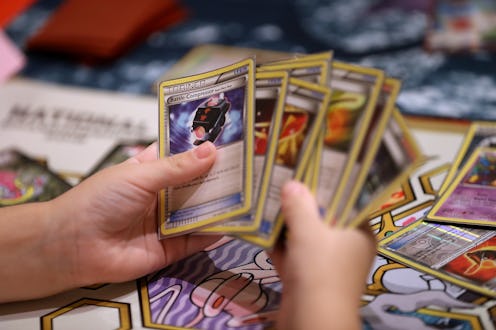Life
Why You Loved Trading So Much As A Kid

Do you remember spending your recess huddled around a mound of sticker books, talking through the logistics of trading oilies for fuzzies? I do, and I could never wrap my head around why kids love trading things so much. How did we have the wherewithal to even understand the value of trade? Did we just arrive here with a natural-born set of skills that allowed us to determine value?
I remember being too young to understand money, too young to have any of my own, and sitting around with my fellow traders, explaining why I wouldn't let any of my oily stickers go for anything less than an equal oily trade, or a very large fuzzy. Sure, the oily stickers cost more money, but I didn't pay for them, so what did the monetary value mean to me?
All I knew is that I got high off of a good trade. That the energy between us baby sharks was palpable. We all knew there was something to gain, and that if were weren't wise about our transactions, there was something to lose. I don't remember my parents ever teaching me about trading toys. If anything, I remember our teachers eventually forbidding it — we had to hide, so we became an underground ring. I did a little bit of research to satiate this curiosity and these are a few interesting facts I learned about childhood bartering.
Exchange Is Fundamental
Bartering was practiced in our earliest civilizations. It preceded our economic system and was based solely on need. Understanding the concept of trading things similar or equal value is a fundamental part of our nature. It keeps us alive and functioning as a society.
Coincident Of Wants
A trade occurs when both children establish they want something from each other. If they both want something that they deem of equal value, a trade can take place. This agreement can also be looked at as a coincidence — they both just happen to want something that the other has.
Bartering Is More Difficult Than Finance
Civilizations created a money system because bartering was too complex. Is a seed more or less valuable than a horse if a seed might create crops or a horse might provide work. Adult bartering is much more of a headache than children's bartering.
Trading Is Empowering
Kids all want what other kids have. When they are able to identify something they want and put together an offer that allows them to get that object of their desire, they feel powerful and confident. It also teaches to manage their emotions by taking jealousy or sadness and turn it into positivity.
Images: Giphy, Getty Images